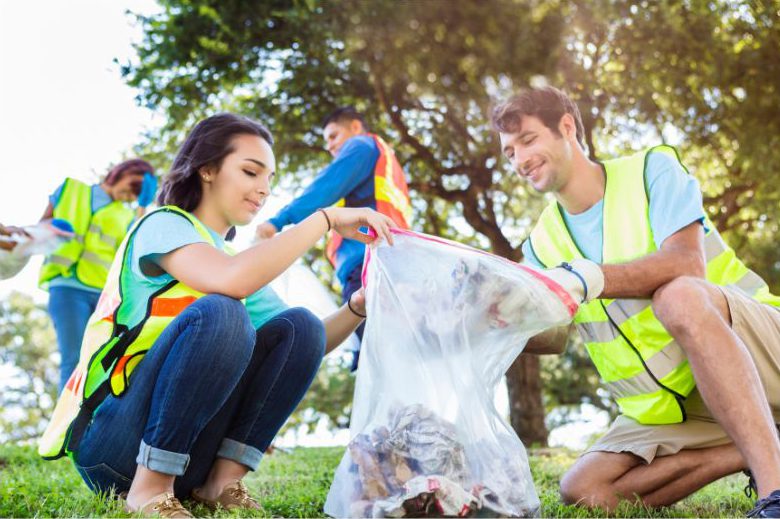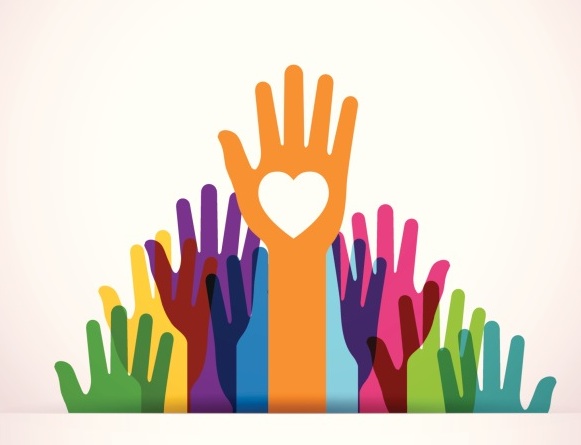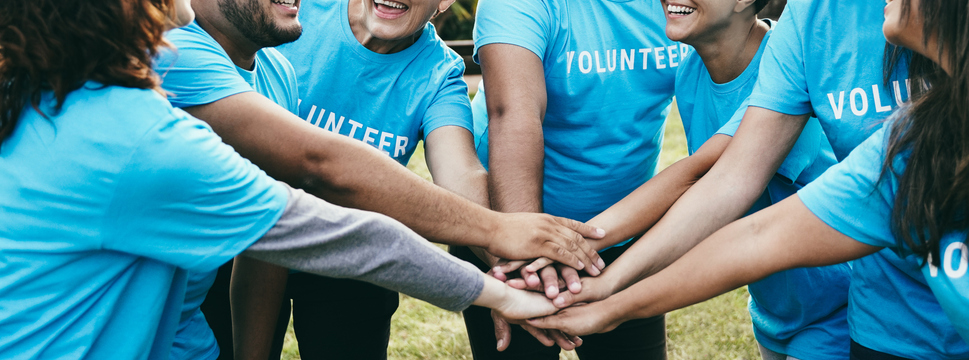
How to Get Started with Community Service
Posted August 31, 2016, 1:50 pm by
“Never doubt that a small group of thoughtful, committed citizens can change the world. Indeed, it is the only thing that ever has.”
Anthropologist, Margaret Mead (1901–1978)
Why should you reach out through volunteer opportunities in high school?
When you reach out to your community, you’re not just making a difference for others. Community service projects have huge benefits for volunteers themselves, such as:
1. Helping out.
Whether you choose to focus on people, animals, or the environment, there are countless ways to make a difference. Nonprofits have all kinds of volunteer opportunities for teens. Organizations and their beneficiaries truly value their work.
2. Getting started down your career path.
Service gives you the chance to develop your leadership, communications and interpersonal skills, as well as an overall sense of accomplishment. It broadens your worldview and even has the potential to introduce you to career choices.
3. Feeling better.
As a busy student, it is easy to obsess about the very real pressures you face. But seeing firsthand the challenges others face and the ways people overcome their challenges provides valuable perspective for your own life. New perspective can help with stress.
4. Stand out to college admissions counselors.
In-depth community service experiences look good on your high school resume because they make you a more multidimensional person and, consequently, a stronger candidate for college. College admissions officers see through superficial involvement, so discover your philanthropic priorities and pursue them with passion. Volunteer work might even give you a great topic for your college admission essays!
Get started by identifying opportunities.
You can single-handedly improve the lives of others by volunteering in high school. Consider the impact of helping an elderly neighbor who no longer can handle yard work or grocery shopping. Or, you could brighten the days of children in the hospital by making craft kits or upbeat playlists. What impact could you have by providing essentials to families in need by donating books, school supplies or clothing to a local shelter? How could you contribute to a team of people working to save animals from extinction, cure genetic diseases, reverse global warming or ensure access to clean water?
Not sure what you want to do? Think about your talents and activities. Connecting your passions to fixing problems in the world will lead you to ideas in the short-term, and maybe even a lifelong commitment to social justice and service to others.
Think about favorite academic subjects, after-school activities, or issues that you care deeply about. Is reading the way you like to relax? Is speaking Spanish a fun challenge? Does hiking bring you joy? What about making movies on your laptop? Are you happiest when you are playing the piano? Or kicking a soccer ball? Do you have a grandparent with Alzheimer’s disease? A friend with diabetes? Do you know someone serving overseas in the military?
Start to brainstorm community service ideas.
Starting with your own passions and interests can lead you to the right project. As you begin to brainstorm, also consider some of the following:
-
Favorite school subjects: Math, art, biology, chemistry, environmental science, history, foreign languages, English.
-
Extracurricular interests: Acting, ceramics, band, chorus, dance, team or individual sports, student
government, babysitting.
-
Hobbies/passions: Animals, biking, cooking, travel, crafts, camping, computers/electronics, gardening, movies, photography, yoga.
-
Universal issues: Education for girls, clean water, global warming, adoption, bullying, eating disorders, depression, domestic violence.
Decide what you want to actually do.
Once you’ve picked your cause, think about how you want to spend your time. Consider opportunities right at your school, in your community, and/or a summer service opportunity in locations across the country and the world. Think about giving time to one cause rather than splitting your time among several. Don’t be a drop-in, occasional volunteer but demonstrate that you have commitment.
Participate in outreach activities.
Depending on the opportunity, you can go alone, with a friend, a group, or with a parent or other adult. You can work directly with the individuals the nonprofit serves, help with administrative duties in the office, clean up, paint, or assist at special events.
Collect goods for donation.
What do you have that someone else could use? You can donate your own stuff (if it’s in good shape), or think about broadening your reach by collecting items from friends, neighbors, even stores to distribute to others in need.
Raise funds.
There are multiple ways to raise money for nonprofits. You can donate your own money, organize a community fundraiser, or participate in a charity run/walk/readathon and raise money through sponsorships.
Lend your social media kills.
Nonprofits often need help spreading the word about their causes. If you think you could be of help in this area, let volunteer coordinators know! It could turn into a “remote” volunteer position that would allow you to help change the world from the comfort of your own home!
Plan your community service.
Identify organizations to support.
Find national or local organizations that could help you get involved in community service at www.teenlife.com. Or, ask your guidance counselor, teachers, parents, neighbors, coaches, friends or religious leaders.
Clarify community service graduation requirements.
If your high school has a community service requirement for graduation, make sure you are aware of all parameters, including:
• Number of hours per year or in total
• Approved activities
• Approved organizations
• Forms, signatures, and deadlines for submission
Get yourself organized.
Once you have ideas for what you’d like to do and potential organizations you would like to help, draft an action plan to organize your thinking and time. Include:
• A succinct overview of the service project
• Objectives/goals
• Names and contact information for people you
will need to work with
• Required materials and approximate costs
• Schedule, noting key milestones and dates
• Success measurements, including how others and
you will benefit
There you have it!
Volunteering doesn’t have to be boring work you do just to satisfy graduation requirements or college admissions officers. Volunteering is about doing what’s best for the community and yourself at the same time, putting your passions to work, making a difference, and keeping track of it all. You can make it happen!
Blog Categories
- Career Advice
- College Admissions
- Colleges & Universities
- Financial Aid and Scholarships
- For Counselors
- For Parents
- For Students
- Gap Years
- Mental Health and Wellness
- Online Learning
- Performing and Visual Arts
- STEM Majors and More
- Summer Programs
- Teen Volunteering
- Trade & Vocational Schools
- Tutoring & Test Prep

Organization with listings on TeenLife? Login here
Register for Free
We’re here to help you find your best-fit teen-centered academic and enrichment opportunities.
Forgot Password
"*" indicates required fields








